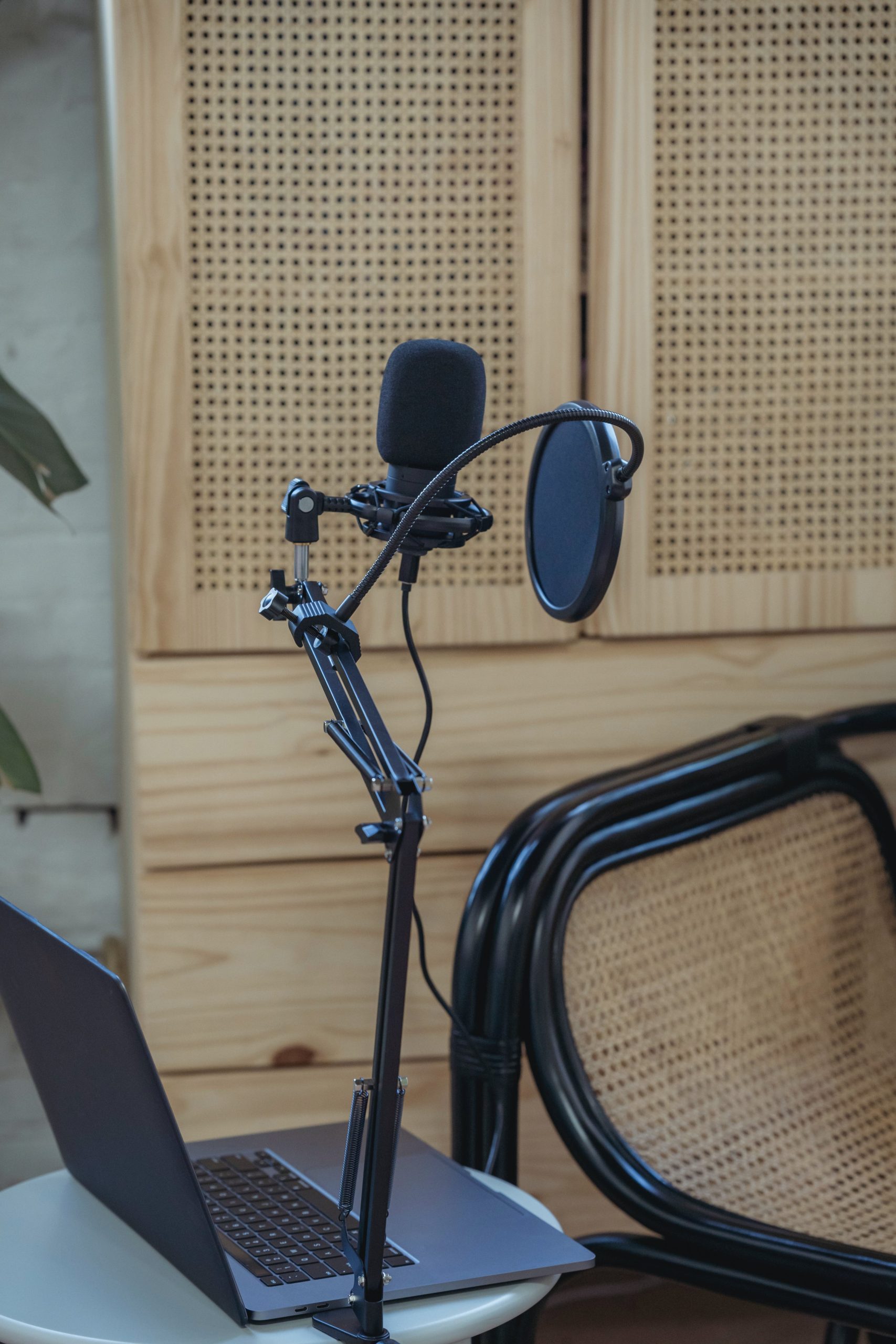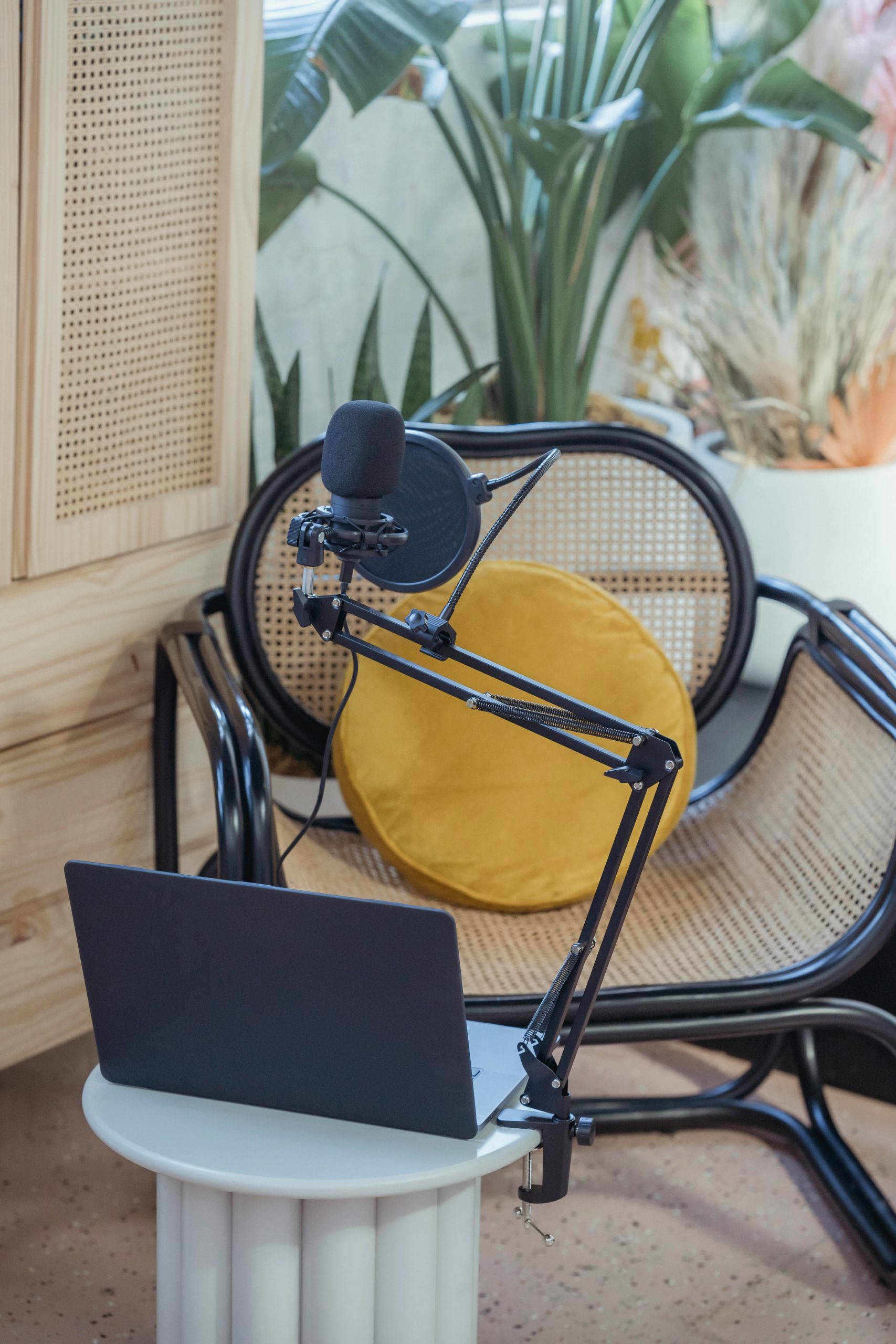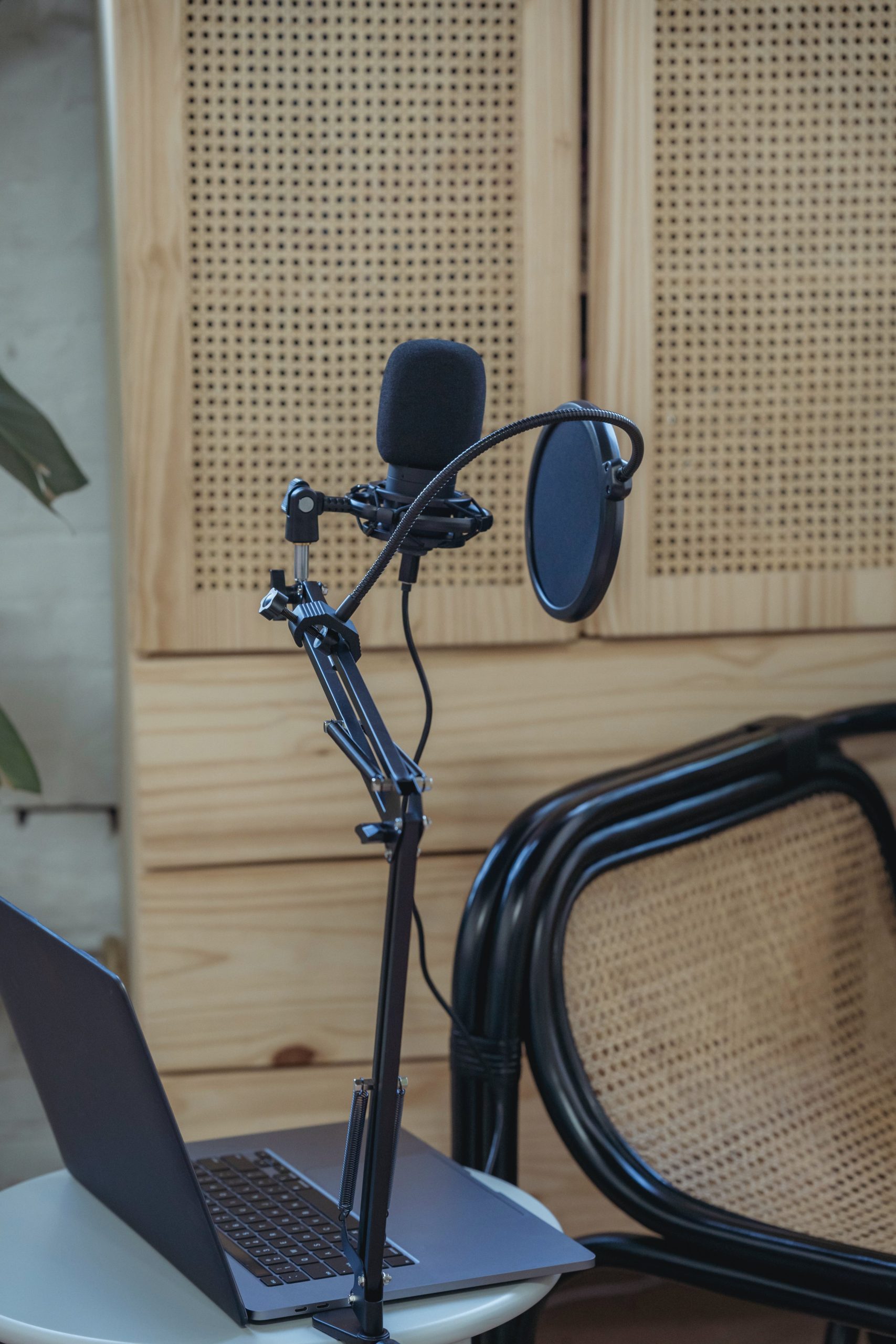Have you ever wondered if having a podcast is free? Well, look no further! In this article, we will explore the costs and expenses associated with starting and maintaining a podcast. From equipment like microphones to editing software, we’ll break down the different aspects that may incur costs and help you understand whether or not having a podcast is truly free. So, let’s dive right in and find out the truth about the expenses involved in having a podcast!

Understanding Podcasts
Podcasts have become increasingly popular in recent years as a form of digital media. But what exactly is a podcast? A podcast is a series of audio or video episodes that are typically released on a regular basis. They cover a wide range of topics and can be listened to or watched on various platforms such as smartphones, computers, or even smart speakers. Podcasts offer a unique and convenient way for people to consume content, making them a popular choice for both listeners and content creators alike.
What is a podcast?
At its core, a podcast is a digital audio or video file that is available for streaming or downloading on the internet. Unlike traditional radio or television shows, podcasts are pre-recorded and can be accessed on-demand. This means that listeners can choose when and where they want to tune in, making podcasts a flexible and personalized form of entertainment or education.
Types of podcasts
There is a diverse range of podcast genres and formats to cater to different interests and preferences. Some popular types of podcasts include:
-
Interview Podcasts: These podcasts feature interviews with guests who are experts in their respective fields. The host engages in conversations with the guests, providing listeners with valuable insights and knowledge.
-
Storytelling Podcasts: This format involves narrating captivating stories, whether they are fictional or real-life accounts. Storytelling podcasts often use sound effects and music to enhance the listening experience.
-
Educational Podcasts: These podcasts aim to educate and inform the listeners about a particular subject or topic. They can cover a wide range of subjects, from history and science to personal finance and self-improvement.
-
News and Current Affairs Podcasts: These podcasts provide listeners with up-to-date news, analysis, and commentary on various topics, ranging from politics and sports to entertainment and popular culture.
Popularity and reach of podcasts
Podcasts have experienced a surge in popularity over the past decade. According to recent statistics, over half of the US population has listened to a podcast, and the number of podcast shows available has grown exponentially. The convenience of accessing podcasts on mobile devices, along with the diverse range of content available, has contributed to their widespread popularity.
Podcasts also have a global reach, with listeners tuning in from different parts of the world. The accessibility and portability of podcasts have allowed people to consume content while commuting, exercising, or doing household chores.
Basics of Starting a Podcast
If you’re considering starting your own podcast, there are a few key aspects to consider before diving in.
Creating a concept
The first step in starting a podcast is to define your concept. What will your podcast be about? Will it revolve around a specific niche or cover a broader range of topics? Take some time to brainstorm and come up with a unique and compelling idea for your podcast. This will help you establish your podcast’s identity and attract your target audience.
Identifying a target audience
Understanding who your target audience is essential for the success of your podcast. Determine who would be interested in the topics you plan to cover and tailor your content to their preferences. Conducting market research or surveys can be helpful in identifying your target audience and shaping your podcast accordingly.
Choosing a podcast format
There are different podcast formats you can choose from depending on your goals and presentation style. Solo shows, where you host the podcast by yourself, are a popular choice, especially for educational or storytelling podcasts. Alternatively, you can have co-hosts or guests to bring different perspectives and dynamics to your podcast. Consider which format aligns best with your concept and abilities as a host.
Cost Factors in Podcasting
While podcasting offers an accessible platform for content creation, there are certain costs involved in getting started and maintaining a podcast.
Equipment costs
Investing in quality podcasting equipment is crucial for producing high-quality audio content. The essential equipment for podcasting includes a microphone, headphones, and a sound interface. These items can range in price, so it’s important to do some research and find a balance between quality and affordability for your budget.
Platform costs
Choosing a podcast hosting platform is essential for distributing your podcast to various podcast directories and platforms. While some hosting platforms offer free options, others have monthly or annual subscription fees. Consider the features and support offered by different hosting platforms before making a decision.
Production and editing costs
Depending on your skills and resources, you may need to allocate a budget for podcast production and editing. This could involve hiring a professional podcast producer or editor to enhance the sound quality and overall production value of your episodes. Alternatively, you can learn to edit and produce your podcast yourself, but this may require investing time and effort into learning the necessary skills and acquiring suitable editing software.
Marketing and promotion costs
Promoting your podcast is essential to attract listeners and grow your audience. While there are free promotional strategies available, such as social media marketing and collaboration with other podcasters, you may choose to invest in paid promotions to reach a wider audience. This could involve running advertisements or sponsoring other podcasts in your niche.
Is Having a Podcast Free?
While podcasting offers opportunities for creativity and content creation, it’s important to recognize that there are costs associated with running a podcast.
Understanding free vs. paid podcast models
podcasts can be created and distributed for free, but there are limitations to what you can achieve without incurring any costs. Free podcast hosting platforms may have limited storage, bandwidth, or customization options. On the other hand, paid podcast hosting platforms offer more features and flexibility for a subscription fee. Consider your podcasting goals and budget when deciding between free and paid options.
How much can you expect to spend on average?
The cost of podcasting can vary widely depending on your individual needs and aspirations. Some podcasters may choose to start with minimal investments in equipment and rely on free hosting platforms until they gain traction. Others may prioritize high-quality production and invest in professional equipment and editing services from the outset. It’s important to assess your budget and prioritize your expenses based on your goals and resources.

Free Podcast Hosting Platforms
podcast hosting platforms are online services that store and distribute your podcast episodes to various podcast directories and platforms. While some platforms charge a fee for their services, there are also free options available.
Overview of free podcast hosting platforms
Free podcast hosting platforms, such as Anchor and Podbean, offer a range of features at no cost. These platforms typically provide basic analytics, distribution to popular podcast directories, and simple editing tools. They are a good starting point for beginner podcasters or those on a tight budget.
Pros and cons of using free platforms
The main advantage of using free podcast hosting platforms is the cost-saving benefit. If you’re just starting and want to test the waters without committing a significant financial investment, these platforms can be a great option. However, there are some limitations to consider. Free platforms may have limited storage capacity, potentially restricting the number or length of episodes you can upload. They may also include advertisements in your episodes or offer fewer customization options compared to paid platforms.
Examples of free podcast hosting platforms
Some popular free podcast hosting platforms include Anchor, Podbean, and SoundCloud. These platforms have user-friendly interfaces and offer basic features to help you get started with your podcast. Explore the features and limitations of each platform to determine which one aligns with your podcasting goals.
Investing in Podcast Equipment
Quality podcast equipment is essential for producing professional-sounding episodes. While there is a wide range of equipment available, it’s important to consider your budget and prioritize your needs.
Budgeting for podcast equipment
Before investing in podcast equipment, establish a budget based on your financial resources. Consider your goals and the level of audio quality you aim to achieve. Remember that you can always upgrade your equipment as your podcast grows and generates revenue.
Essential podcast equipment
The most important piece of equipment for podcasting is a quality microphone. Invest in a microphone that suits your recording environment and requirements. Additionally, consider purchasing headphones for monitoring the audio and a sound interface to connect your microphone to your computer. These basics will ensure clear and professional-sounding audio for your podcast.
Improving sound quality with good equipment
Quality equipment plays a significant role in enhancing the sound quality of your podcast. Professional microphones help capture clear and noise-free audio, while headphones allow you to monitor and adjust sound levels during recording and editing. A sound interface ensures optimal audio transfer and minimizes background noise. By investing in good equipment, you can create a more immersive and enjoyable listening experience for your audience.

The Cost of Podcast Production and Editing
Producing and editing podcast episodes is a crucial step in creating a professional and engaging podcast. Depending on your skills and resources, you can choose to handle the production and editing yourself or outsource it to professionals.
DIY podcast production vs. professional production
Producing your podcast episodes yourself is a cost-effective option, especially if you have the necessary skills and software. You have full creative control and can learn and improve your production skills over time. However, it requires time and effort to research and implement various production techniques.
Alternatively, hiring a professional podcast producer can save you time and ensure high-quality results. They have expertise in audio engineering, sound design, and episode structuring, which can elevate the overall production value of your podcast. Before making a decision, consider your budget and the level of production quality you aim to achieve.
Using podcast editing software
Podcast editing software allows you to refine your recorded audio by removing mistakes, adjusting levels, and adding music or sound effects. There are various editing software options available, ranging from free programs like Audacity to more advanced software like Adobe Audition or GarageBand. Explore different software options to find one that suits your editing needs and skill level.
Hiring a podcast editor
If you prefer to focus on hosting and content creation, you can hire a professional podcast editor to handle the post-production process. A podcast editor will refine and polish your recorded episodes, ensuring a seamless listening experience for your audience. When hiring a podcast editor, consider their experience, portfolio, and rates to ensure a good fit for your podcast.
Promoting Your Podcast
Promoting your podcast is crucial to building an audience and increasing your reach. Effective marketing strategies can help attract new listeners and retain existing ones.
The role of marketing in podcast success
Marketing plays a vital role in the success of your podcast. It involves creating awareness, generating interest, and driving engagement with your target audience. By effectively marketing your podcast, you can maximize its exposure and increase the likelihood of gaining loyal listeners.
Free promotional strategies
There are numerous free promotional strategies you can leverage to promote your podcast. Utilize social media platforms to share behind-the-scenes content, engage with your audience, and share episode updates. Collaborate with other podcasters or influencers in your niche to tap into their existing audience base. Engage with your listeners through email newsletters or online communities to foster a sense of community and loyalty.
Investment needed for paid promotions
While free promotional strategies are valuable, investing in paid promotions can help accelerate the growth of your podcast. Consider running targeted advertisements on various platforms, such as social media or podcast directories. Sponsor other podcasts or collaborate with influencers to reach new audiences. Allocate a budget for paid promotions based on your goals and resources, ensuring that you are targeting the right audience and maximizing your return on investment.

Monetizing Your Podcast
monetizing your podcast allows you to generate revenue from your podcasting efforts. While it may not be the primary motivation for starting a podcast, exploring monetization strategies can help cover the costs and potentially generate income.
How do podcasts make money?
Podcasts can make money through various revenue streams, including:
-
Advertising: This involves partnering with sponsors or advertisers who pay to have their ad featured in your podcast episodes. Advertisers can pay per episode or based on the number of downloads or impressions.
-
Crowdfunding: Some podcasters rely on crowdfunding platforms like Patreon to generate income. Listeners can support the podcast by making monthly or one-time donations in exchange for exclusive content or perks.
-
Merchandise and products: Creating and selling merchandise related to your podcast, such as t-shirts or mugs, can be a profitable revenue stream. Alternatively, you can develop and sell digital products like e-books or online courses.
-
Paid subscriptions: Some podcasters offer premium content or ad-free episodes for a subscription fee. This allows dedicated fans to access exclusive content and support the podcast directly.
Monetization strategies for podcasts
When exploring monetization strategies for your podcast, consider partnering with sponsors or advertisers relevant to your niche. Research and reach out to companies or brands that align with your podcast’s content and target audience. Additionally, consider creating a membership program or selling merchandise to offer value to your loyal listeners while generating income.
Understanding the profitability of podcasting
While podcasting can be a profitable venture, it’s important to manage your expectations. The profitability of your podcast depends on various factors, including the size and engagement of your audience, the number and quality of sponsorships, and the effectiveness of your monetization strategies. It may take time to build a dedicated audience and secure profitable partnerships, so focus on creating quality content and consistently engaging with your listeners.
Concluding Thoughts on Podcast Costs
Starting and maintaining a podcast involves various costs, both monetary and non-monetary. It’s crucial to weigh the costs against the potential benefits before diving into podcasting.
Weighing the costs versus benefits of podcasting
Consider the time, effort, and financial investment required to produce and promote a podcast. While there are costs involved, such as equipment, hosting, and marketing, the benefits can be substantial. Podcasting provides a platform for self-expression, knowledge sharing, and connecting with a global audience. Evaluate your passion for the subject matter and the potential impact you can make through podcasting when assessing the costs and benefits.
The importance of budgeting and planning in podcast production
Budgeting and planning are essential in managing the costs of podcast production. Determine your financial resources and allocate them wisely across equipment, hosting, production, and promotion. A well-thought-out budget will help you make informed decisions and ensure that you can sustain your podcast in the long run.
The potential return on your podcast investment
While the financial return on podcasting may vary, there are non-financial returns that can contribute to your overall satisfaction and personal growth. Podcasting allows you to build a community, establish yourself as an expert in your field, and foster connections with like-minded individuals. By investing in your podcast and consistently producing valuable content, you create opportunities for personal and professional development.
In conclusion, while having a podcast comes with costs, both monetary and non-monetary, the rewards can be significant. By understanding the different aspects of podcasting, from concept creation to monetization, you can make informed decisions and navigate the exciting world of podcasting with confidence. Remember to budget, plan, and focus on creating quality content that resonates with your target audience. With dedication and perseverance, your podcast can become a rewarding and fulfilling endeavor.

